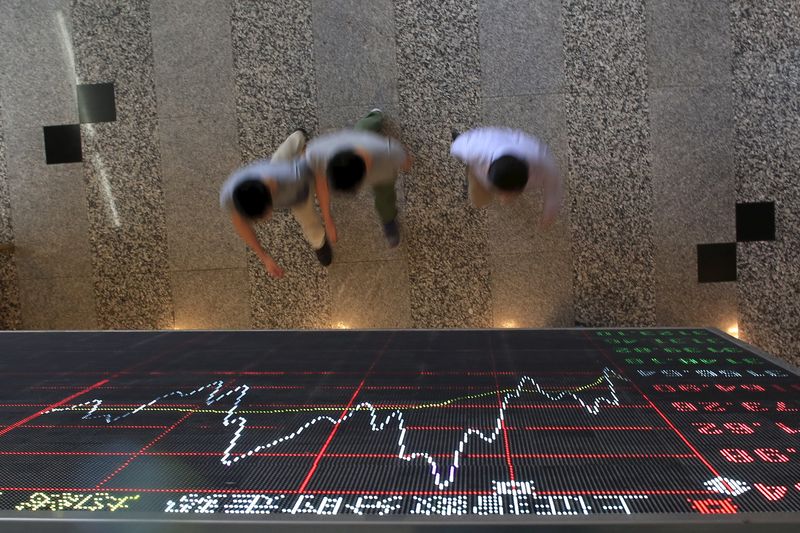TSX higher on employment data
Investing.com-- Asian stocks traded mixed on Monday as investors remained cautious ahead of impending tariffs from U.S. President Donald Trump, while Chinese markets declined after data showed ongoing deflationary pressures in the country.
Futures for major U.S. stock indices fell in Asia hours after Wall Street closed sharply lower for the week.
Investors cautious amid Trump tariff concerns
Last week, President Trump heightened trade tensions by imposing 25% tariffs on Canadian and Mexican goods, and increasing levies on Chinese products to 20%.
However, he later softened his stance, by delaying tariffs by four weeks on most Mexican and Canadian goods, but remained firm on his stance on China.
A day earlier, U.S. Commerce Secretary Howard Lutnick said on NBC’s “Meet the Press” that Trump remains firm on applying tariff pressure on Mexico, Canada, and China due to their handling of fentanyl.
South Korea’s KOSPI was trading 0.6% higher, while the Philippine’s PSEi Composite index was up 0.7%.
Japan’s Nikkei 225 gained 0.7% on Thursday, while TOPIX edged 0.2% higher.
Australia’s S&P/ASX 200 ticked 0.3% higher.
On the other hand, Indonesia’s Jakarta Stock Exchange Composite Index fell 0.8%, while Thailand’s SET Index inched down 0.2%
Futures for India’s Nifty 50 were 0.4% lower.
China CPI and PPI inflation shrink more than expected in Feb
China’s Shanghai Composite fell 0.6%, while the Shanghai Shenzhen CSI 300 index declined 0.8%. Hong Kong’s Hang Seng index slumped 1.7%
Data on Sunday showed that China’s deflationary pressures intensified in February, as both consumer and producer prices declined more than anticipated amid weak consumer spending.
The consumer price index (CPI) contracted by 0.7% year-on-year, marking the first decline in 13 months and surpassing economists’ expectations of a 0.4% drop.
Concurrently, the producer price index (PPI) declined by 2.2% year-on-year, slightly improving from January’s 2.3% decrease but still missing the forecasted 2.0% drop.
These deflationary trends emerge amid the ongoing National People’s Congress (NPC), where policymakers are deliberating strategies to bolster economic growth.
The recent data may intensify discussions on implementing more robust stimulus measures to counteract the weakening inflation and support domestic demand.
